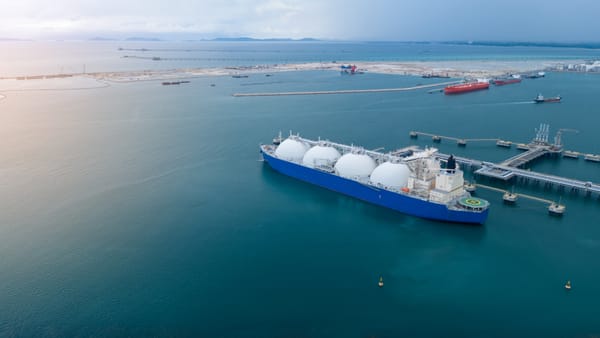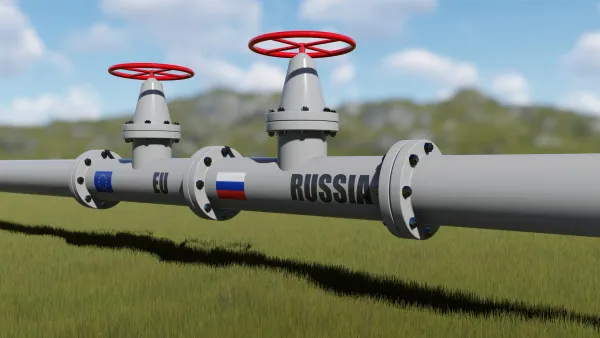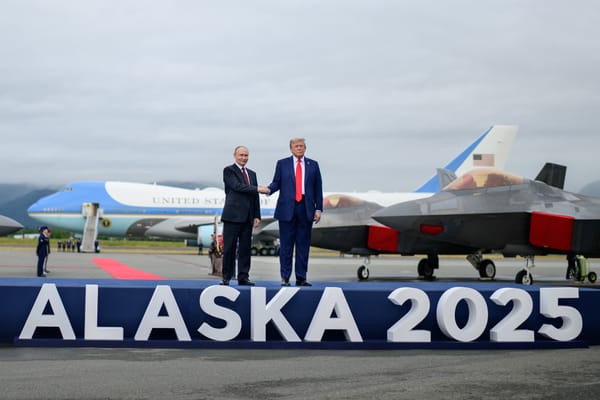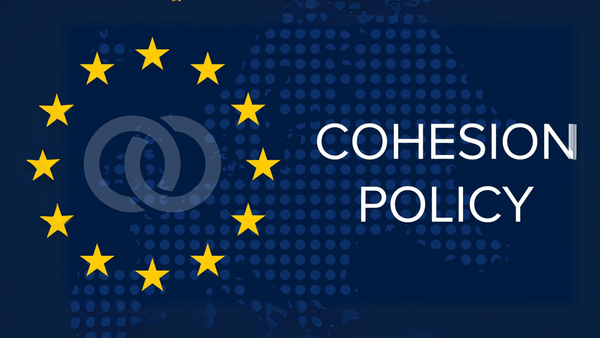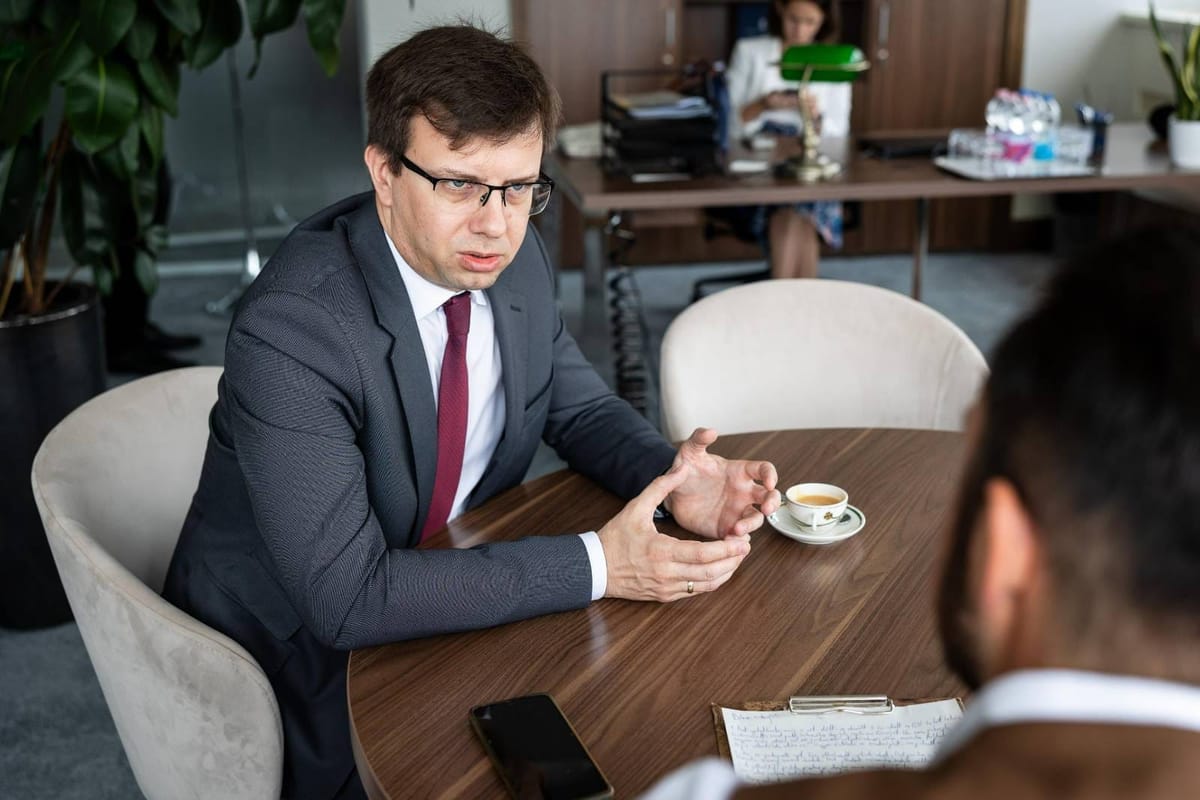
Hungary's EU Presidency: steering Europe's agenda through stormy times
Hungary will take over the rotating presidency of the Council of the European Union on Monday, 1 July with the slogan “Make Europe Great Again,” a nod to the populist and nationalist politics of Donald Trump, who will run for US president again in November, during Hungary’s own tenure.
Hungarian Prime Minister Viktor Orban is widely seen as the bloc’s closest leader to Russia, and its biggest dissenter, meaning the Hungarian presidency’s stance could bring conflicts on issues including Ukraine’s potential EU accession and also climate policies.
Hungary’s government has frequently criticised the EU’s Green Deal and climate agenda, and this, coupled with the new intake of far-right MEPs in Brussels, could impact the EU’s 2030 targets and overall goal of net zero emissions by 2050.
Hungary EU minister focuses on economy
The presidency of the Council of the EU traditionally requires impartiality and a commitment to the EU’s collective interests from Hungary. However the EU presidency is by no means a carte blanche for the host nation, and requires legislative proposals primarily to come from the European Commission with approval from member states and the European Parliament (EP).
Hungary’s leadership will be closely watched, not just for its handling of legislative matters but also for its ability to balance national interests with the collective goals of the EU. According to Brussels insiders, other EU member states are prepared to step in if Hungary disrupts the EU agenda.
Hungarian EU Minister Janos Boka, has vowed that Hungary will work productively and loyally with all member states and institutions to boost EU economic competitiveness, enhance defence policy, and push for a consistent enlargement policy.
In an interview with Hungarian weekly Demokrata, Boka said “The Hungarian presidency will focus on competitiveness… we want to examine everything else through this lens. Ensuring the long-term competitiveness of the EU and concluding a new European competitiveness pact are also one of the most important priorities of the Hungarian presidency.
“There are very serious problems in the European Union. The EU is economically in need, its national income and share of world trade is decreasing, it is unable to provide for its own protection and security, it is in a position of strategic dependence, although given its economic strength and population, it would have the opportunity to become an independent pole in the new world order and to establish strategic autonomy in the area of economy and defence,” he added.
However, Boka has indicated that no major movement is expected on Ukraine’s EU accession before 2025, reflecting Hungary’s reluctance regarding promoting the matter.
Orban lays out Hungary’s position on Ukraine
On the war in Ukraine, Orban said “the Western world, led by the US, is trying to defeat Russia without getting directly involved in the conflict… once the Russian president, violating all principles of international law, had tried to prevent Ukraine from joining NATO”, in his weekly interview with government-friendly Kossuth Radio.
“The West regarded this as an opportunity to weaken and then defeat Russia, instead of striving to isolate the conflict and curb the fallout of the war, which is the position represented by Hungary,” Orban said. “Russians do not want to live next door to a country such as Ukraine armed with state-of-the-art NATO weaponry: the Hungarian people have made it clear that they did not want Hungary to take part in the war,” he added.
Orban said the minimum goal had been achieved, an agreement had been reached with the NATO general secretary that Hungary would not participate in NATO’s Ukraine mission with either money, weapons or soldiers. “We also talked to the train driver, but could not convince him – he is a strong driver and can only be stopped by Donald Trump,” he said, referring to the upcoming US election candidate.
Orban slams Weber, EPP, migration
Orban said the centre-right European People’s Party (EPP) political family in the EP, “calls itself right- wing but moves towards the left with every alliance”, and is part of “a pro-war coalition that has banded together to speed up Europe’s slide into the war”, adding that Germany was undergoing a level of militarisation unprecedented since World War II.
He claimed that what he characterises as the “European left-wing coalition” is now “on the side of tax rises, so it isn’t market-friendly… is pro-war, pro-migration and anti-economy”. The shift to the right “has happened” but did not lead to a change in power because the EPP “always takes its voters towards left, leading to a left-wing rather than a right-wing majority in Europe”, he said.
Orban claimed that EPP head Manfred Weber had only one goal close to his heart: “to do harm to Hungary”. He recalled that when Fidesz won the election in 2018, a few days later the Article 7 procedure was launched against Hungary with Weber’s “effective support”.
The same thing happened this time, he said: “the pro-peace party” won in Hungary and “the pro-war forces in Brussels immediately hit us with an unprecedented fine,” Orban said. He indicated, however, that working groups have been set up to fend this off and find solutions to make those who earn the most from migration and war pay this fine.
“This is a diverse, changed, multicultural world (in which) the migrants arriving here are no longer guests, but, by obtaining citizenship in an expedited procedure, are present in the country by their own right, gradually taking it over.” Orban repeated his support for the so-called great replacement theory, which claims that Europe’s population is being replaced by Muslims.
According to the Fidesz-founded think-tank Szazadveg’s Europe Project new research covering 2023 and 2024, Europeans view von der Leyen “and the Brussels bureaucracy” in a “clearly negative” way.
According to Boka, “It is possible to imagine that a political coalition will be formed again – with the participation of the People’s Party, the Socialists and the Greens – which will instinctively follow the same faulty policy as they did for the past five years. I think we all want to make Europe great in our own way,” Boka said.
Orban underlines importance of German economy to Hungary
Orban wrote on Facebook after meeting German Chancellor Olaf Scholz on Friday 20 June “Ten days until the Hungarian EU presidency begins. We want to live in a peaceful, competitive and secure Europe! The Germans are the largest community of investors in our country. Last year our commercial turnover set a new record, it exceeded EUR 70bn. The interests of Hungary and the German industry are the same: we want a competitive Europe and unhindered international economic-trade cooperation,” Orban added.
The Hungarian premier also said the openness of the world economy was a key issue for Hungary. The prime minister said the country’s current living standards could not be kept up “solely from the market provided by ten million Hungarians”.
Orban cited automotive giant Mercedes-Benz as an example of the ties between Hungary and Germany, and said the company was about to create 3,800-4,200 new jobs at its plant in Kecskemet, central Hungary.
On the upcoming EU presidency, Orban said he and Scholz would discuss “great European issues too”, and “the issues Hungary wants to table and how far it wants to take them”. These include tax cuts, family subsidies, Serbia’s EU integration, and improving European competitiveness, he said.

